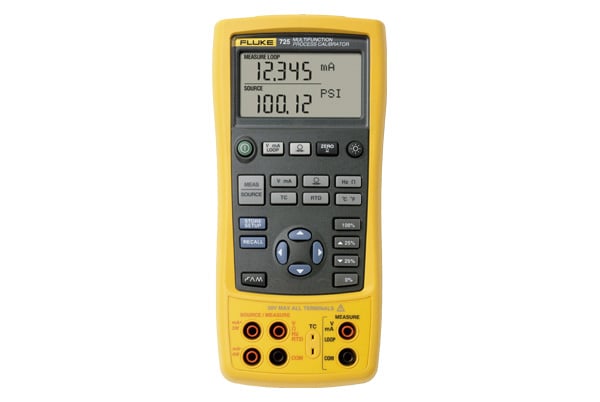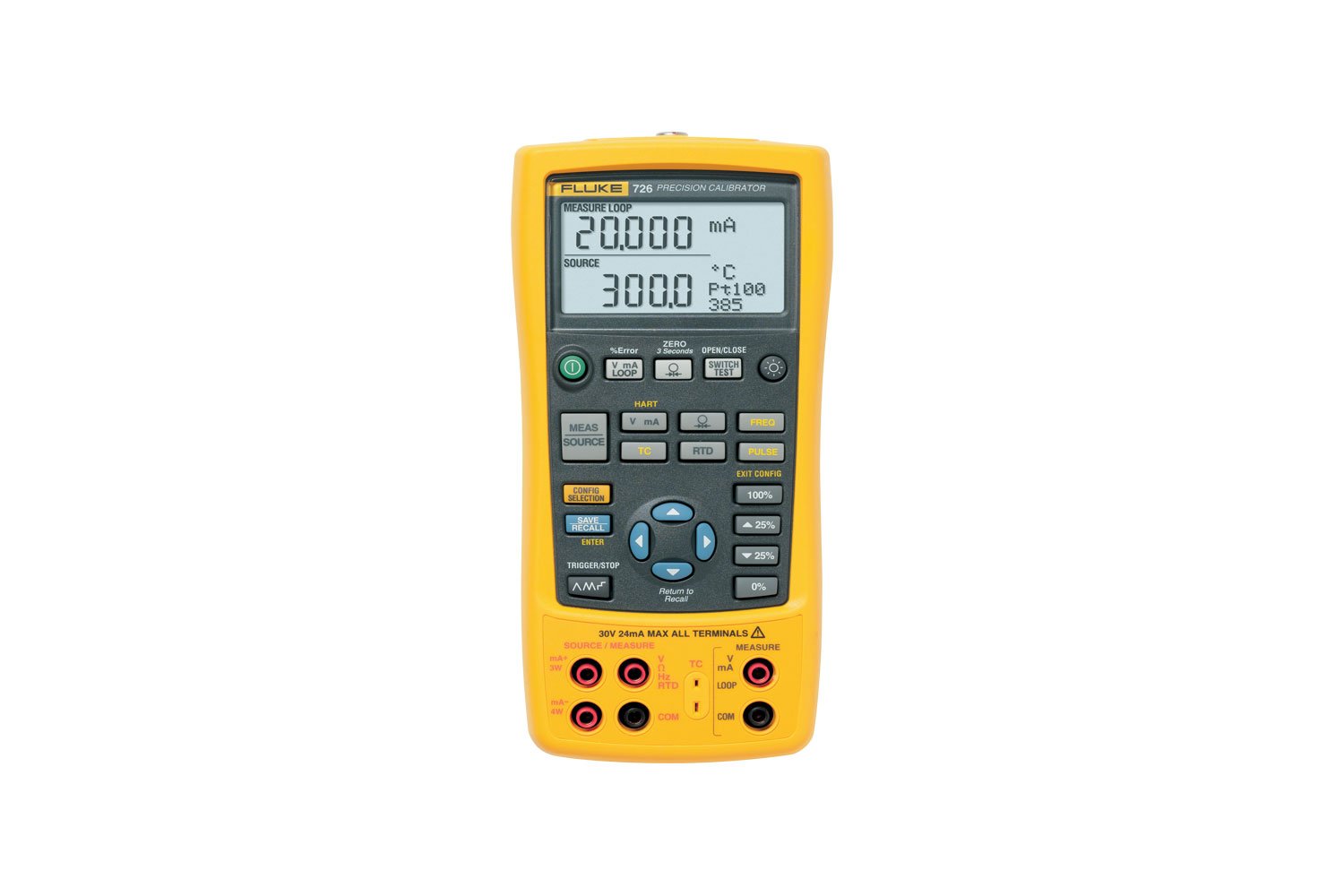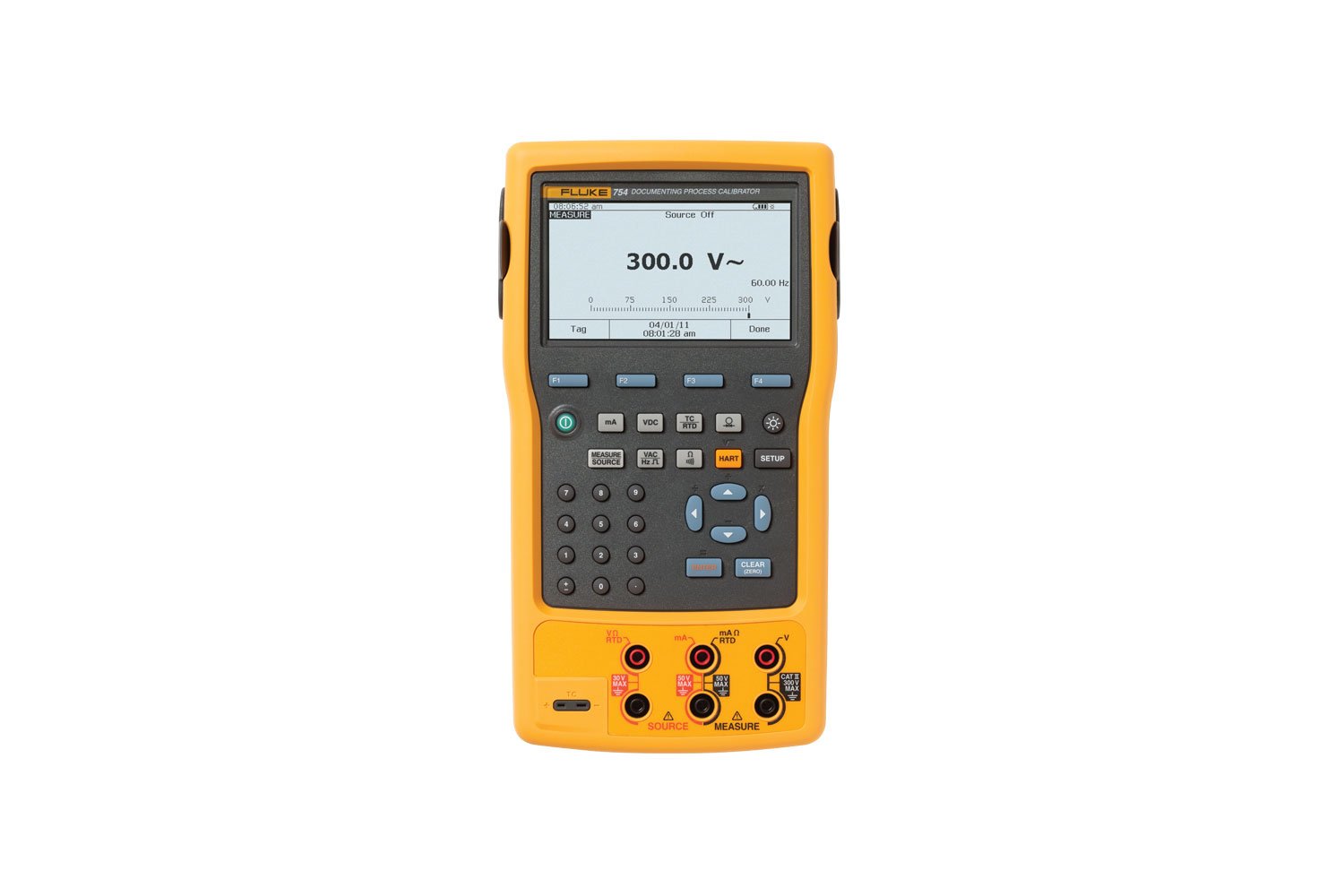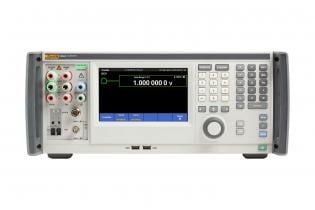Multifunction calibrator tools
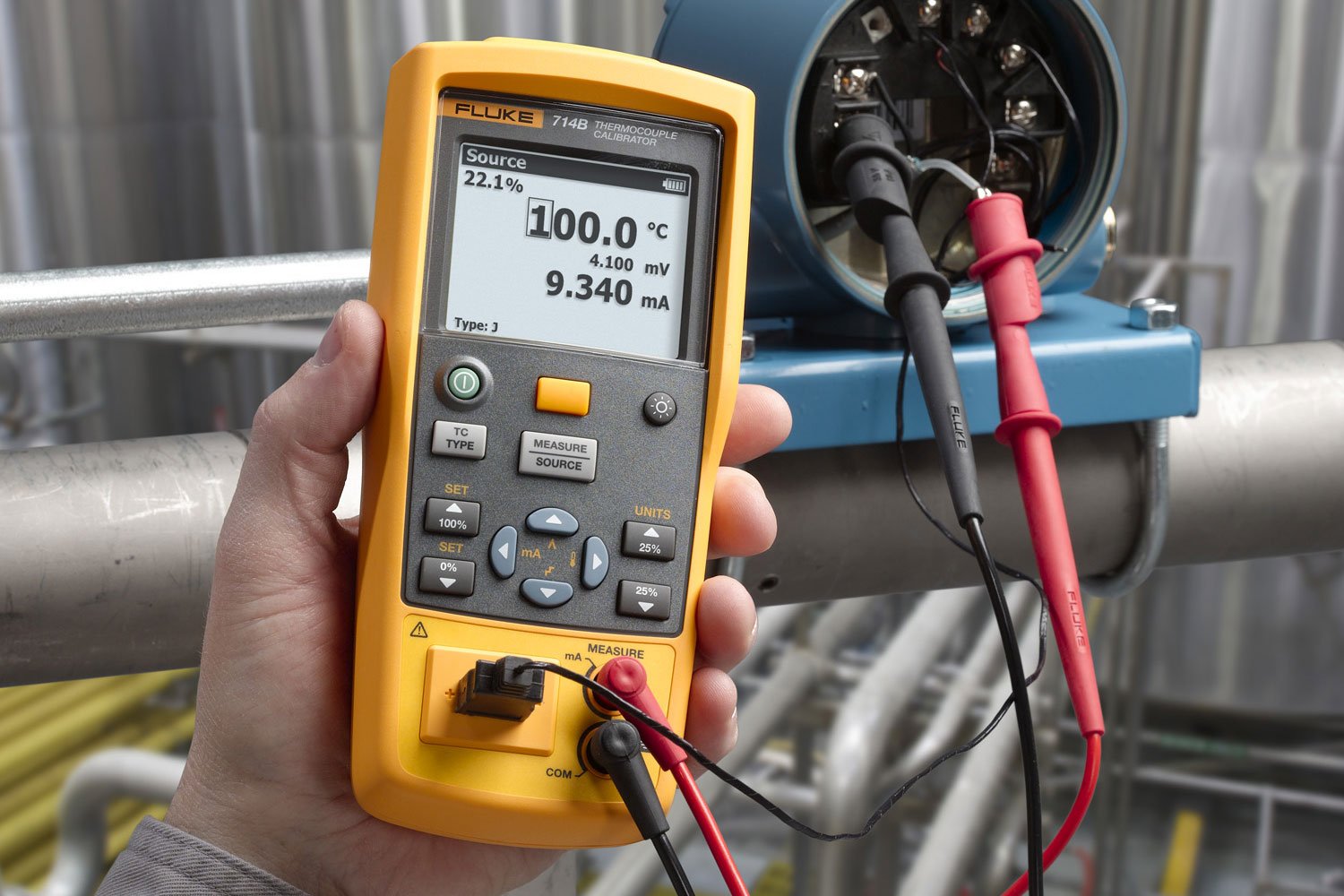
Fluke Multifunction Calibrator Process Tools are designed to calibrate almost anything. These calibrators source, measure and simulate almost all process parameters, and documenting versions even document the results. The Fluke 754 does the work of several tools - sourcing, simulating and measuring pressure, temperature, and electrical signals in one compact, hand-held device. The Fluke 726, specifically designed for process industries, measures and sources almost all process parameters and can calibrate almost anything in the plant.
Fluke Multifunction Calibrator Process Tools are designed to calibrate almost anything. These calibrators source, measure and simulate almost all process parameters, and documenting versions even document the results. The Fluke 754 does the work of several tools - sourcing, simulating and measuring pressure, temperature, and electrical signals in one compact, hand-held device. The Fluke 726, specifically designed for process industries, measures and sources almost all process parameters and can calibrate almost anything in the plant.
Find the right pressure calibrator
Find the right pressure calibrator
Multifunction calibrator solutions
There is no one size fits all calibrator that meets the requirements of all users.
Our process calibration tools product selector can help you choose the right process calibrator for the task you need to perform.
Best value
Best overall
For experts
Fluke 5560A, 5550A and 5540A Multi-Product Calibrators
Comprehensive workload coverage, intuitive front panel, MET/CAL compatibility.
Fluke 726 Precision Multifunction Calibrators
Calibrate thermocouples and RTD temperature instruments
Fluke 753 Documenting Process Calibrator
The 753 does the work of several tools – sourcing, simulating and measuring pressure, temperature,...
Fluke 154 HART Communicator
The Fluke 154 is a standalone tablet based HART® communication tool. The tablet configured with the...
Fluke 700PCK Pressure Calibration Kit
The Fluke 700PCK makes it possible to calibrate your pressure modules at your facility using your...
Fluke TL80A Basic Electronic Test Lead Kit
Test leads are an integral part of the complete measurement system and extend the capabilities of...
Frequently asked questions for multifunction calibrator tools
What does calibration do?
Calibration ensures accuracy and reliability in measuring devices by aligning them with standard measurements.
What is a calibration process?
This process involves comparing a device's readings against a known standard and adjusting as necessary.
How do you calibrate?
Calibration involves:
- Using a standard or reference.
- Measuring the device's output.
- Adjusting it to match the connection.
How do you measure calibration?
Calibration is measured by comparing the device's output to a known standard or reference value.
What are the types of calibration?
Types include electrical, mechanical, temperature, and pressure calibration.
How do you control calibration?
Calibration control is maintained through regular checks, employing reliable standards, and documenting results.
What is a calibrator used for?
A calibrator adjusts the precision of measuring instruments to ensure accuracy and reliability.
What is an example of a calibrator?
An example is the Fluke 754, which measures and simulates pressure, temperature, and electrical signals.
What is a calibration tool?
A calibration tool is a device used to adjust the accuracy of measuring instruments.
What is a calibration tool used for?
These tools are used for adjusting and verifying the accuracy of measurement devices across various fields.
What does a calibrator do?
A calibrator adjusts and verifies the accuracy of measurement tools, ensuring correct readings.
What are the types of calibration?
These include electrical, mechanical, temperature, pressure, and frequency calibration.
What is a multifunction calibrator?
A multifunction calibrator is a device capable of calibrating multiple types of measurements, like the Fluke 726, suitable for process industries.
What are multifunction calibrators used for?
Multifunction calibrators are used to calibrate various measurement devices, offering versatility in a single tool.
